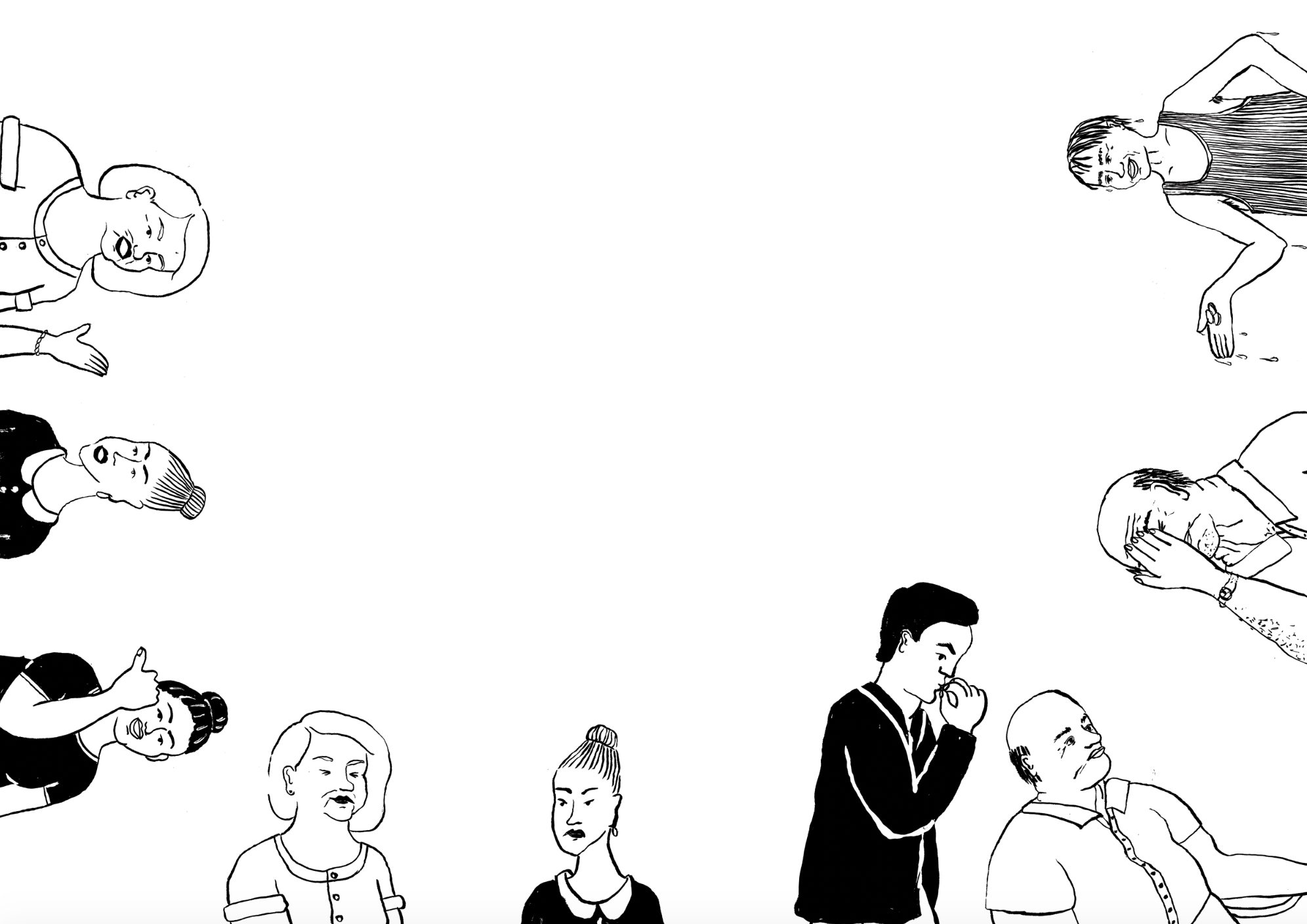
Branko Ćopić
This satire written by a famous Yugoslav writer Branko Ćopić (1915-1984), who was a partisan and a Communist, took for its target the formation of a new ruling class in Yugoslavia, which would later be called “red bourgeoisie “. Published in 1950, it caused a scandal, as well as a very harsh verbal condemnation of Ćopić, that came directly from Tito. After this, Ćopić was under pressure from Yugoslav police and political structures until the end of his life – in the end he committed suicide for this reason.
A villa of considerable size, surrounded from all sides by a wall and open only to the sea, lies along crumbling and steep rocky outcropping. I can barely see it among the pine and cypress trees. It was built during the time of the old, the rotten, the elitist…etc. Yugoslavia.
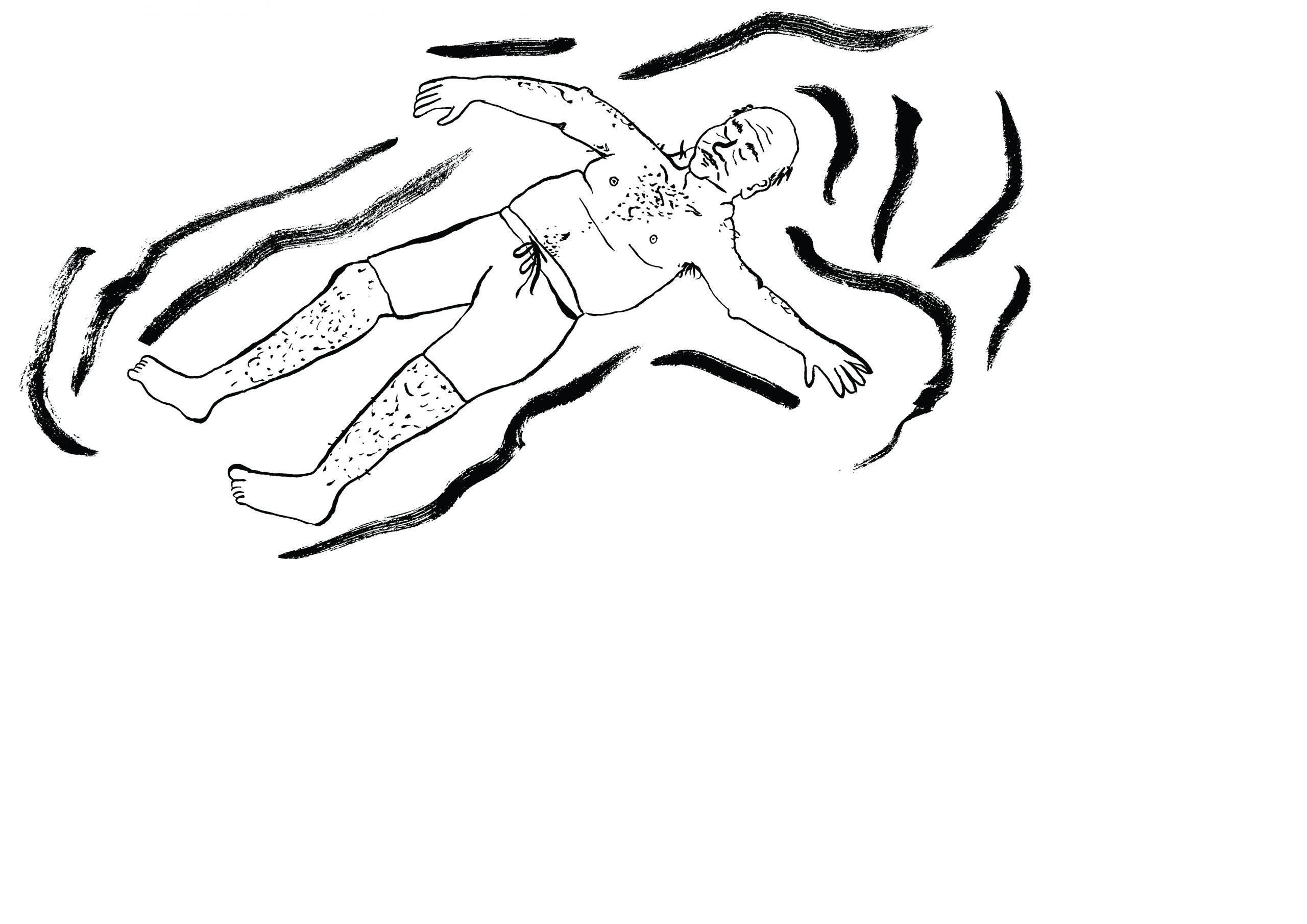
In front of the villa is a small terrace in the shade of ivy, bordered by a brass fence. Below it, some ten steps lower, is a miniature beach, a swimming pool, and a shallow dock.
To the right of the villa, around a hundred meters away, begins the arc of a large sandy beach. There behind it, through thick greenery, roofs, and walls of numerous resorts are peeking through and glimmering.
On the shady terrace of the villa, a small gathering is silent and bored: minister Štef Jovanović, his sister-in-law, the minister’s assistant with his wife, general Stevo Navala, some big shot from a big institution, another unspecified hot shot whose line of business no one can quite guess (and who is wisely and solemnly silent the whole time), a few old women and men and, finally, a supervisor of the personnel department, who is sternly and suspiciously observing the cypresses, the sea, the boats, and a small cloud overshadowing the villa.
The minister’s sister-in-law (a student who goes to university by car) and the assistant’s wife have just returned from town. They took a dignified walk, honoring the old town and the sun above it and, with their hair blowing in the breeze they raced back in their car, scattering the trudging pedestrians (their little noses up in the air, naturally). Now they are both sitting in the corner, not far away from the minister, and going through their morning adventures.
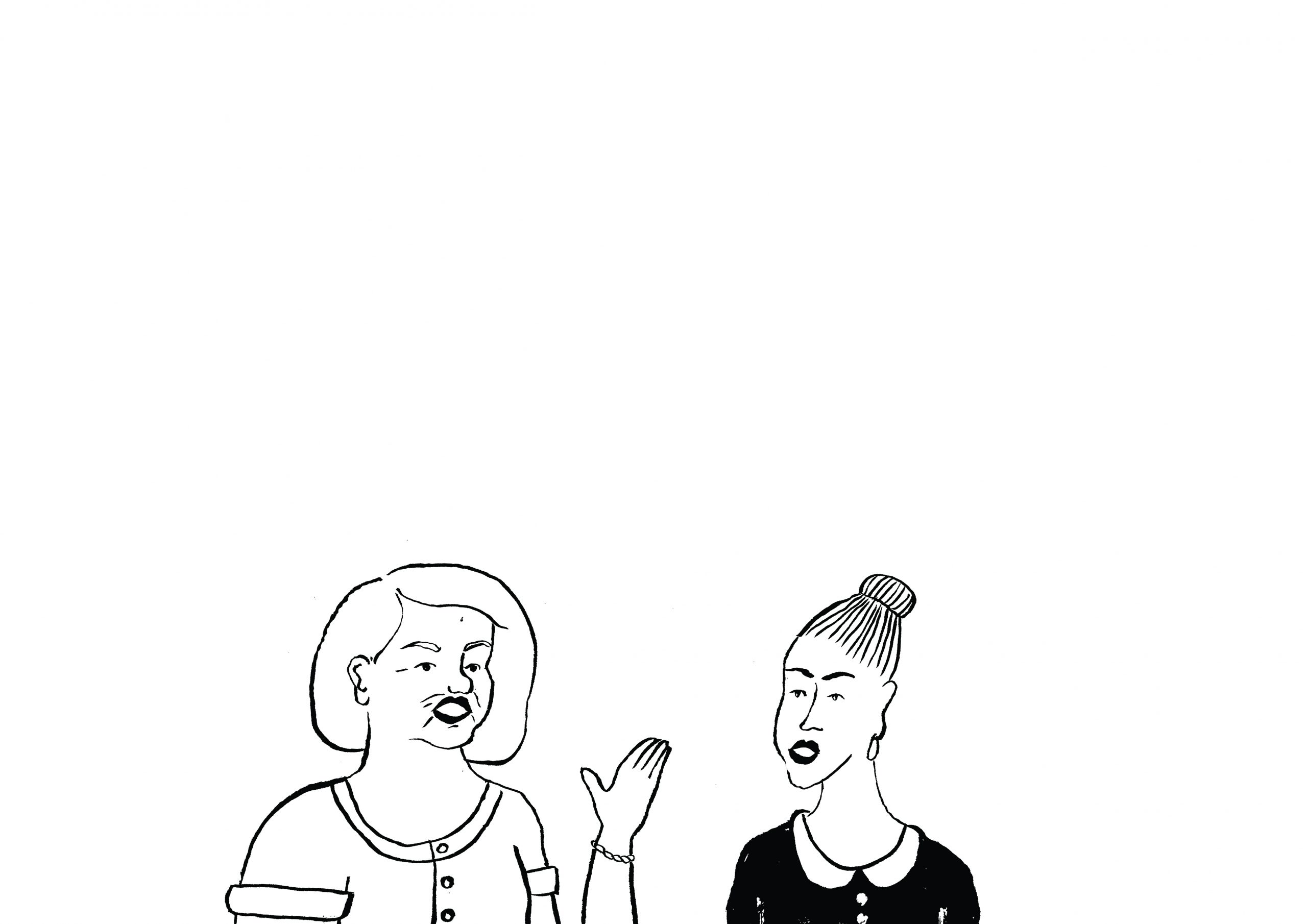
“And who was that ugly fat guy who said hello to you by the fountain?” inquires the sister-in-law, an old candidate for marriage, by the way.
“What fatso?” the assistant’s wife raises her eyebrows. “Why, that’s a certain colonel and he’s still a bachelor.”
“Ah, fine fellow, very nice.” The sister-in-law stretches her mouth and asks further: “And that handsome young man? Remember? He waved to you from the fortress?”
“That guy?” mumbles the assistant’s wife sourly. “Some student– my brother’s friend.”
“Bah, what a rude guy,” frowns the sister-in-law. “He has such an insolent expression and he is so…Some people are so boorish. They give themselves too much freedom.”
“Way too much,” agrees the assistant’s wife.
Not far away, the large beach is humming, splashing, and screaming. General Navala silently walks down the stairs, carelessly swims behind the wall, then casts a careful glance at the villa and splashes quickly towards the large beach. There he is recognized before he’s even out of the water and he’s showered by cheerful shouts:
“Ah, here he is, here he is!”
“Man, where were you? Over here!”
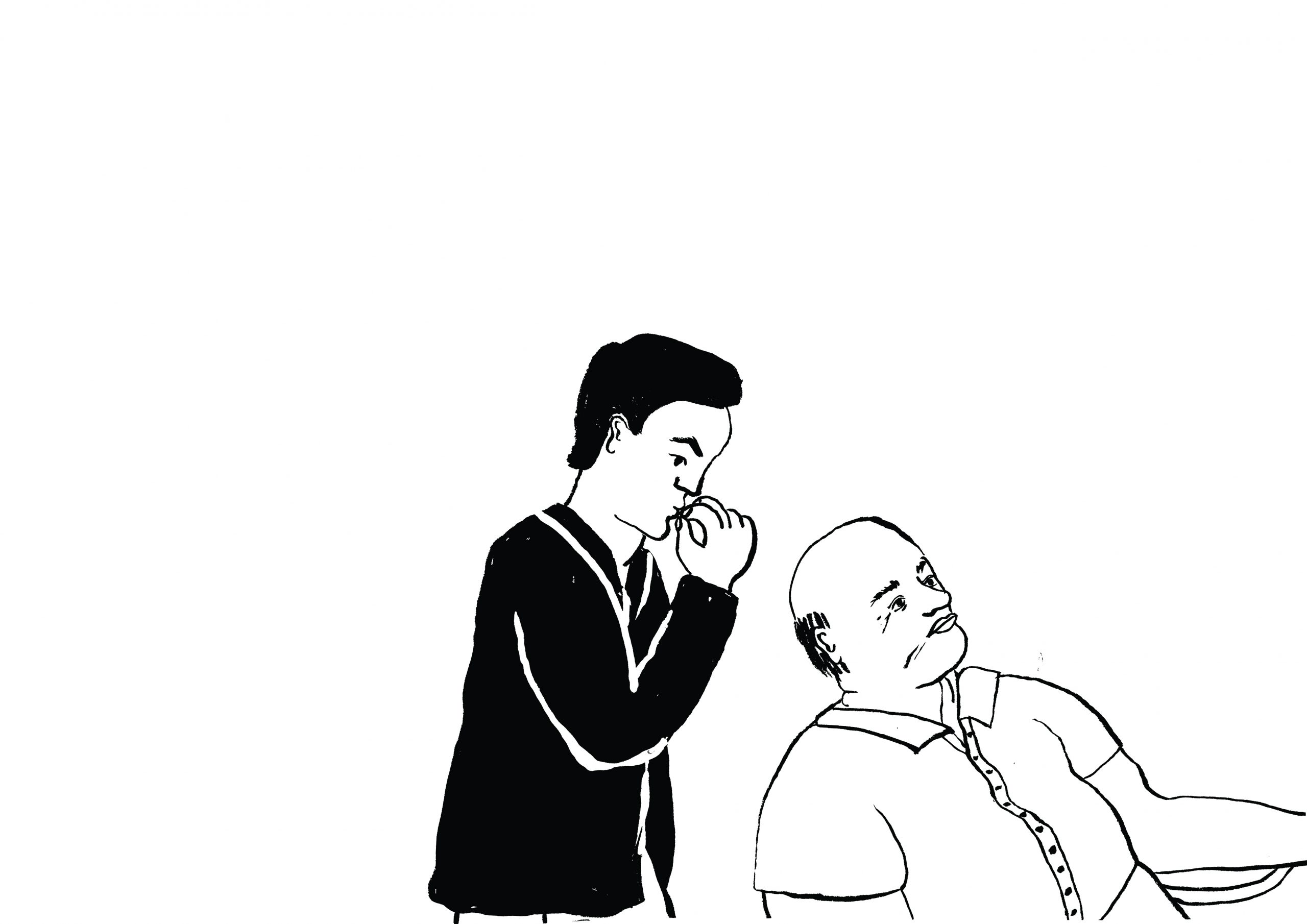
Already after a minute, this distinguished and ill-tempered general from the terrace turns into a gleeful and talkative fellow. He laughs from the heart, squints in the sun, and asks a swarthy boy, his former courier:
“Listen, Milojica, would there be a place available at your resort? I don’t feel like sitting there across the wall.”
“In fact, there will be. Some people from our company are leaving tomorrow.”
It’s still silent on the terrace. Every conversation quickly dies away and glorious boredom rules again.
“Have you dropped by the big bistro?” the assistant asks his wife.
“Ah, the hell we did. It was so crammed by common folk that we couldn’t find a free spot.”
“Ah, and such a lovely terrace they have there, it looks right over the sea,” sighs the sister in law.
“They should only let people in if they have a special pass, like in that place of ours, remember? It wouldn’t be so crowded then, not just anyone could go there.”
“What can you do!” shrugs the assistant.
Comrade minister is deep in thought. On one hand, his heart is pulling him there, to the large beach, amongst the people, and on the other, he fears he would lose some of his own importance if he mixed with the masses. Isolated like this, he seems to himself so much more significant and wise, like he’s one of the select few, but still there’s emptiness in his soul as if he is somehow misplaced.
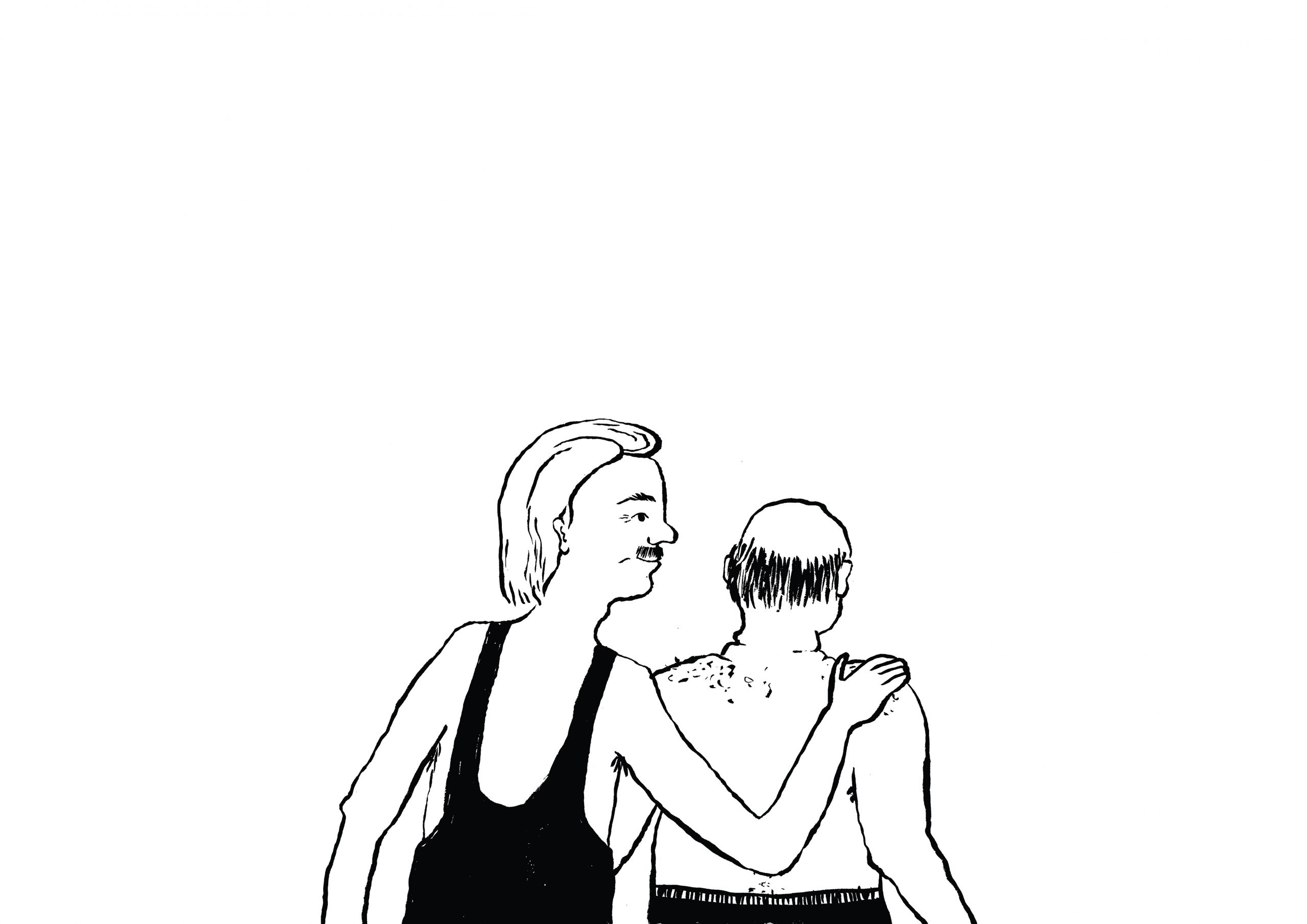
Swiftly and gently, slightly swinging in the hips, a director of a big hotel approaches the minister. He’s been in the villa for a few days now, half as a guest and half as the main supplier and adviser. He’s acquainted with almost all of the ministers, generals and other “big men”, as he refers to them.
“Comrade minister, there’s a splendid billiard lounge at one of the resorts, and you, as far as I know, love…” he starts with a quiet and discreet whisper.
“I suppose the comrades from that resort love it too” says the minister without thinking and, as if he was trying to unburden his own conscience, he says decisively: “No, no need.”
“No need!” like an echo, indulgently, the director repeats and then, trying to push the right buttons with the minister, again leans to his ear and tells him sweetly:
“But the way you swim!” the director puts three fingers in a cluster and kisses them.
“Aha, did you see?” the minister lights up and comes to life. “And it hasn’t even been a week since I learned how to do it.”
“You’ve lost a lot of weight, too, your stomach is almost completely flat” continues the director.
Jovanović is not quite convinced as he tries to asses his own large figure, but when the director repeats his claim, it seems to him that his stomach is truly gone.
“Well, I did get thinner.”
The director, very pleased, sails back towards the kitchen while the minister looks at himself with a satisfied smile.
The babbling sister in law restrains her tongue for a moment, stretches her long neck and, as if she suddenly woke up, spins her squirrel head around.
“And where’s the general, where are they?”
“I guess they’re over there,” the fat assistant’s wife distorts her lips and with her thumb, across her shoulder, points to that place “over there” which pulls away, “swallows” and irreparably spoils yesterday’s fine people.
“They sure found themselves some company! You can even hear grunting from there!”
“Who cares,” says the girl grudgingly and mumbles ironically, more to herself ”Perhaps it’s fashionable to court workers at the seaside.”
“Well, probably. And the actresses and ballerinas are being saved for the winter season” adds the assistant’s wife meanly, referring to who knows who from their company.
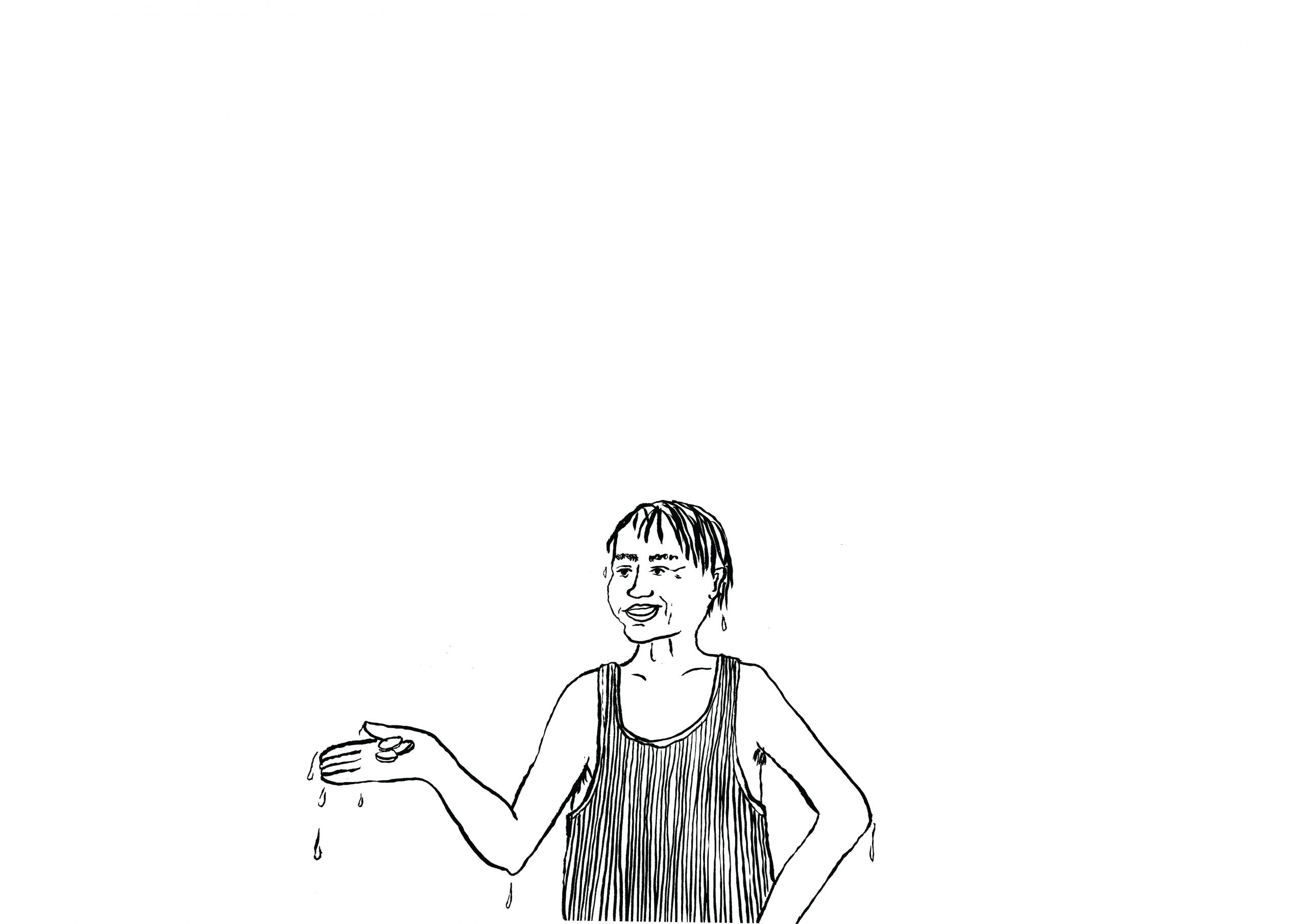
Beneath the small beach, there’s a sound of splashing water and someone loudly and barbarically hissing. A wet snout with bright, insolent eyes–which probably flew over from the large beach–curiously peeks at the secluded gathering, climbs the terrace and, slapping his swimsuit, stretches his neck towards the small buffet under the balcony.
The company is awkwardly silent and they’re pretending not to notice the intruder. At last, the supervisor gets up and approaches the stranger.
“What are you looking for, comrade?”
“You got somethin’ cold to drink here?” asks the newcomer and jangles the coins in his wet pocket, assuming that the supervisor is the hospitable host of the villa.
“Here it’s forbidden…” begins the supervisor seriously , but the conniving rascal, not listening, is already stomping his wet feet towards the buffet and cheerfully shouts to the waiter:
“Come on, give your buddy here a spritzer, and make it strong”
Suddenly, a memory strikes the minister and he quickly peeks at the unknown visitor, who is already coming back after being inhospitably served at the buffet.
“Yes, it’s him”
He recognized the famous udarnik1 and novator2 to whom he personally handed an award and a medal last summer, and like he got caught in bad company, he turns red and lowers his head so the heroic worker wouldn’t recognize him.
“Hell, what will the man say if he saw me, too?!”
Meanwhile, his sister-in-law, bored to death, turns her head while sitting in a rocking chair and asks:
“Why don’t you bring the music from that big hotel in town over here? Sometimes in the evening, I get such an urge to dance.”
The minister is consumed by anger:
“But, please, hundreds of people go there every night. How would you snatch the music from them and trap it here in this…this?…”
The sister-in-law raises her eyebrows in wonder:
“My god, there are respectable comrades here.”
“Comrades. So what?” Štef Jovanović says angrily, but the sister-in-law stands her ground and interrupts him:
“You sure arranged for me to get some rest. Anyone can barge in here anytime they want. And do you remember when we were here for the first time?”
“Well, yes, I do… It was two years ago, during baćuška’s3 course.”
The sister-in-law bites her tongue and, ill-disposed, turns to her friend, who indulges her in a whisper:
“It’s not all bad in the baćuška’s line. I think I prefer this: today you can get a scolding from any grandma at a conference on account of the minister’s storeroom.”
“Well yes, socialist democracy,” ironically nags the student. “You arrive at college in a car and already everyone is bursting with envy: these days it’s best, they say, to be the minister’s sister-in-law.”
“There, you see.”

Above the concrete edge of the beach, someone’s mocking face emerges from the water. The newcomer shouts a notch too loudly, above the regular decent tone of this terrace:
“Hey, over here, minister. Let your brother see you swim.”
The minister jumps to his feet, happy to get a chance to show off. The sister-in-law is confused and she turns to the assistant’s wife:
“And who is this now?”
“Ah, what do I know, we met somewhere once. He’s some artist, a sculptor or a writer, I forgot…What’s that guy?” she asks her husband.
“What is he? He’s a money grabber, that’s what he is!” the minister’s assistant gives a disdainful and grumpy response in a cutting tone.
“And what do our comrades think of his worth?” Inquires the sister in law with her eyes still glued to the guest. And this look, analytical and undefined, seems to say it all: “Hold on a minute till I figure out who you are and I might even give you a smile.”
Štef plunges into the water and already his arms are flailing. His friend is grinning:
“You swim badly, my brother, like a pensioner.”
“You were always a nag. Others tell me my swimming is great.”
“They’re lying, I swear, don’t trust a thing they say. You’ve also gained too much weight, it’s not good for you.”
“Listen to this guy!” The minister is confounded, but the face of his comrade is so frank and bright that he had to laugh too.
They were swimming like that for a while, along the shore, until the minister finally started to earnestly complain:
“Buddy, I’ve had enough of the stale environment up there. All I can do is go to the common beach every day, with you guys, or to move to some syndicate’s resort.”
“And you don’t fear, perhaps, for your authority?” cunningly jests the artist.
Štef arrives to the shallow water, straightens up and, with the gesture of a man who is finally shaking off his still unbaked beliefs about his own greater value, hits himself on the chest angrily:
“I was never afraid of open criticism from the people and I won’t be now! Here, let people look me in the eyes, from up close, just one step away.”
While the two of them are melting into the noisy crowd at the large beach, there at the small terrace of the villa, the assistant with a mild expression on his face, is listening to the director explaining something to him as if he is suddenly the oldest on the entire terrace:
“You know, everybody scattered, and you are now the oldest one here, so you give the orders…”
“Alright, alright, fine.”
“The oldest!” The assistant is looking around the nearly deserted terrace, sinks deeper into the wicker chair and starts dreaming big. First he imagines that his wife had died, so he married the minister’s sister-in-law, and then he became a minister himself, and then the prime minister, and then…
Apparently, the two men next to him are having similar reveries. Only in their imagination the assistant finished his career long ago, so he became an industrial worker, and they are now climbing higher over the assistant’s old position, which is only the first step.
The pretty sister-in-law is dreaming a little as well, only she can’t settle down and decide who would be her husband. The myriad of choices are so tempting, and she is, unfortunately, just one person.
And the large beach is freely humming, shouting, singing and, while disturbing their grand plans, wildly expressing pleasures and desires in everyone’s reach.
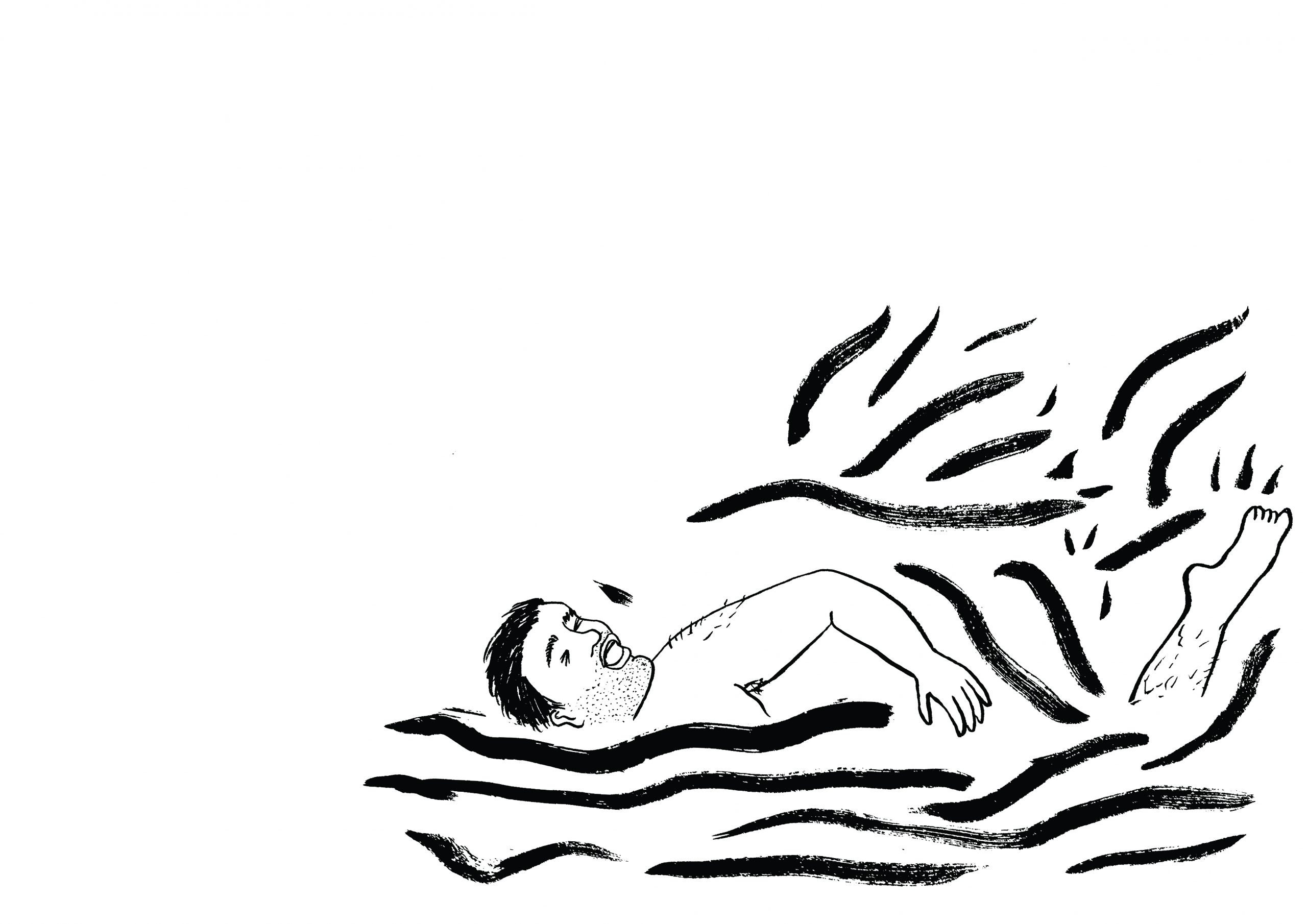
1 Udarnik – Russian and Serbo-Croatian term for a highly productive worker. Also known in English as a shock worker or strike worker The ideology behind promoting shock labour was that through socialist emulation the rest of the workforce would learn from the vanguard
2 Novator – One that introduces new ideas and methods of work in a field and improves a certain kind of work quantitatively and qualitatively.
3 Baćuška – Russian word of endearment, meaning “father”. In Yugoslavia used as a term for Russians in general, or for Stalin specifically.
